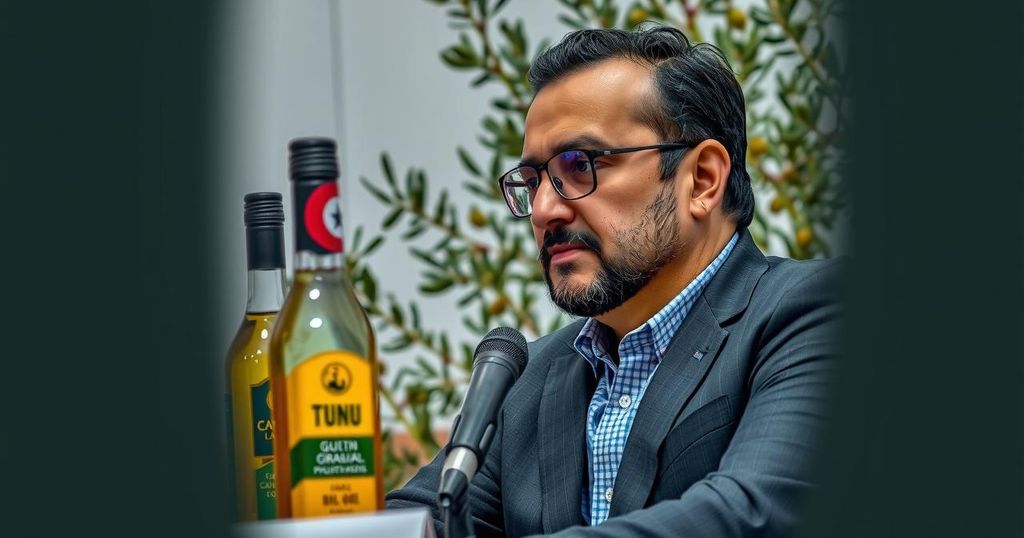Lebanese Researcher Documents Environmental Impact of Israeli Military Tactics
Ahmad Baydoun, a researcher in Amsterdam, investigates Israel’s use of white phosphorus in southern Lebanon. His geolocated data demonstrates severe health effects and environmental damage from military actions that violate international law. The situation escalated with conflict, contributing to major displacement and the destruction of farmland, highlighting critical humanitarian and ecological concerns.
Ahmad Baydoun, a Lebanese researcher pursuing a PhD in Amsterdam, has gained prominence for documenting the Israeli military’s use of white phosphorus in southern Lebanon amidst rising violence. This incendiary substance, while permissible in certain military contexts, is restricted by international law from being deployed near civilians due to its devastating health and environmental effects. Baydoun utilizes geolocated visual data to trace these military actions, aiming to foster accountability through precise documentation of the ecological and health impacts resulting from these operations. Baydoun’s research has taken on urgency following cross-border attacks between Israel and Hezbollah, resulting in significant displacement and casualties. His analytical shift has involved employing satellite imagery and social media to catalog real-time incidents of phosphorus use in Lebanese villages, with local reports indicating over 117 phosphorus bombs directed at populated areas since October 2023. This tactic has resulted in extensive damage to the environment, including the loss of hundreds of hectares of farmland and forests. The health implications for residents are dire, with severe burns and respiratory issues prevalent among those exposed. The Lebanese Ministry of Health has pleaded for international action against these military practices, emphasizing their long-term psychological effects, particularly among children. The contamination resulting from white phosphorus raises alarms about not only local but also regional agricultural sustainability and food security, potentially affecting Lebanon’s economic stability. With a focus on meticulous verification of military incidents, Baydoun collaborates with digital platforms and local journalists to unveil hidden truths in a conflict-ridden landscape. His methodology addresses the complexity of misinformation while providing clarity amidst the chaos. Reports of white phosphorus affecting UN peacekeeping forces further illustrate the precarious situation on the ground and the urgent need for international scrutiny. Baydoun concluded by expressing the emotional toll of his research, underscoring a dual commitment to both advocacy for his country and the hearts of its people. As he stated, “You are working for your country, and it is hard to stop.” His efforts not only seek to document but also to advocate for change, highlighting the humanitarian crisis unfolding in Lebanon.
The use of white phosphorus in military conflict has raised significant legal and ethical questions internationally. Despite its legality under certain military contexts, international conventions strictly prohibit its use in civilian areas due to the severe health and environmental repercussions. Lebanese researcher Ahmad Baydoun has shifted his academic focus to address the real-time implications of these military practices, particularly in relation to the ongoing conflict involving Israel and Hezbollah. His work highlights not only immediate human suffering but also long-term ecological and economic threats to Lebanon’s agricultural heritage and public health.
Ahmad Baydoun’s research illustrates the profound impact of military action on civilian life, public health, and environmental sustainability in Lebanon. By documenting instances of white phosphorus use, he fosters greater awareness and accountability regarding violations of international law. The ramifications of such military strategies extend beyond the battlefield, threatening the stability of Lebanon’s economy and the well-being of its citizens. With an emphasis on collaboration and accurate data, Baydoun’s work serves as both a historical account and an urgent plea for international intervention.
Original Source: www.arabnews.com




Post Comment